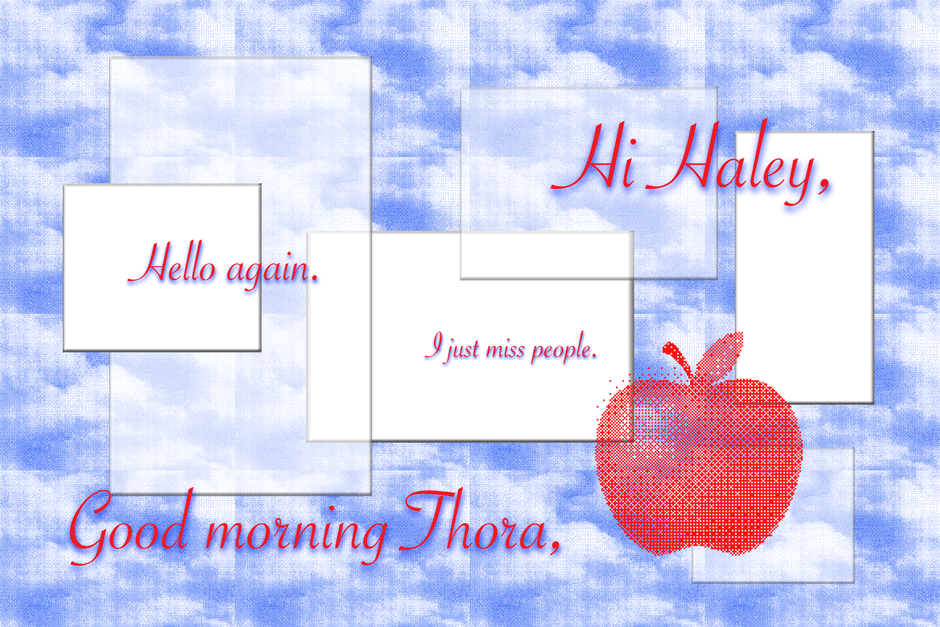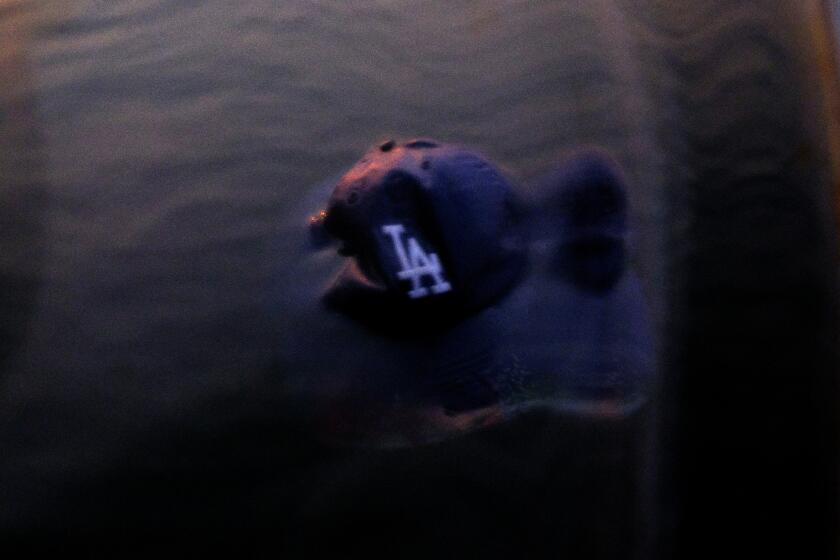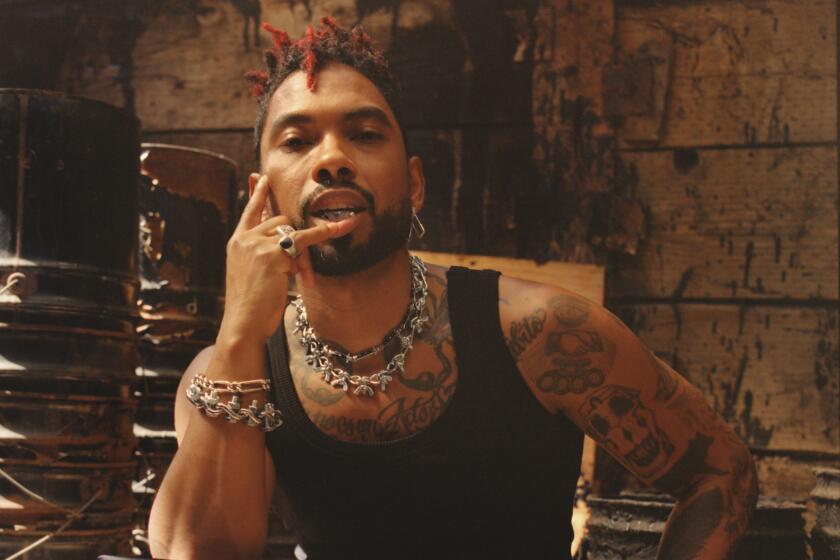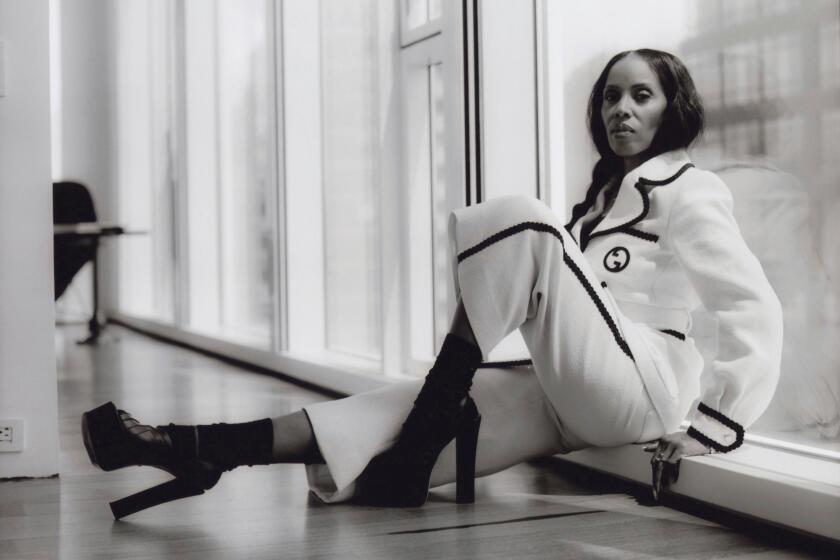
This story is part of “Discourse,” a fresh look at the dire state of the bicoastal conversation — free from corniness and cliches. Check out the whole issue — the “New York” issue, if you’re reading between the lines — here. Read the second part of “Never left” here.

I’m writing to you from Boulder, Colo., where I’m house sitting for the next few weeks. Had dinner with friends, whom I’m also hiking with tomorrow morning up to Lake Dorothy, about an hour drive from Boulder. Call time is 6:30 a.m. The sun just set, and I’m already in bed with a book, but I wanted to send you something to get our correspondence going.
All in all, I lived in New York for six years. I left in March 2022, and I’ve been back to visit five times since then. I still like it, but I’m definitely wired for the West, even the more desolate parts. Did you read that Cookie Mueller essay, “Escape From New York,” in the reissue of “Walking Through Clear Water in a Pool Painted Black”? It’s from the mid-’80s after she’d lived in New York City for nearly nine years. “Since one year here is equivalent to seven anywhere else, that makes 63 years for me,” she wrote. Remind me, how long did you live in N.Y.C.? And how’s being back in Montreal?
Thora


I actually don’t know what time it is in Boulder, and it’s barely still morning where I am. I am in the city where I live (Montreal), but in a house where I don’t (a weekend of dog-sitting, which is like house-sitting, but with more incentives to go outside).
I lived in New York for seven years, and Cookie Mueller’s words in the essay you sent me — as they often do when I read her writing — felt instantly truer than my own experiences. I love how matter-of-fact she is about being right: Of course, her proclamation states, one year is equivalent to seven. In the six years I lived in New York, some of which overlapped with your six, I could never decide how I experienced time. Was it fast and short? Sometimes. Was it long and dog-like? More than occasionally. I suppose either of those could convince me that I lived a long life in those years.
Jason Parham on leaving Los Angeles for New York: ‘What I sought in the story of this new frame was a rejection of stasis. What I went looking for in New York was the person I always dreamed of being in Los Angeles.’
In the years I lived there and in the visits I’ve had since, I spent so much time in different kinds of sitting: house, dog, cat, plant. I went from place to place for different purposes, like a favor to friends, but we all understood that I was the one receiving the favor. If you are wired to the West, I am oriented toward interiors. I need my own space, and God knows almost no one gets that in New York.
Montreal is different enough that I feel a change, yet close enough that I can sometimes forget that I do, actually, miss New York. I have not yet experienced any emotional or intellectual certainty that I made the right decision in leaving it. Maybe that will come later; maybe certainties also move at the span of dog years. Do you ever miss New York?
Haley


There’s dogs here too. I’m watching one of them bury a bone in the backyard while I write this. I went on a short hike yesterday and took them with me. Case in point, I’ve definitely also relied on the favor economy for places to stay throughout my adult life. I care more about stability as I get older, and it just doesn’t feel possible for me in New York. I’m talking about material stability, but emotional too — I’m a nature girl who can’t go against her nature for too long. As I was leaving the city last year, a couple friends said things to the tune of, “You’ll be a big fish in a smaller place,” but that wasn’t my goal and hasn’t been my experience. When I’m not house sitting, I’m 30 or so miles north of Boulder on the way to Wyoming. Being a freelance writer in the digital cycle is not a legible identity in small-town America. So part of my quest for stability is finding other things to do for now, though I’m still happy to write (especially to you).
The last time I saw you was at a screening of “Alice Doesn’t Live Here Anymore” that I presented at the Museum of the Moving Image in Queens this past June. Afterward, a friend said it was funny that I came back to New York to present a movie about not living someplace anymore. But it wasn’t self-conscious in that way. It’s a movie set in Arizona, where I’m from, and it was referenced in a piece I’d just written about the desert. There is a movie called “Harry and Tonto,” which came out the same year as “Alice” (1974) and also stars Ellen Burstyn, which is the only film I can think of with characters dispersed across all four states I’ve lived in: Arizona, Colorado, Illinois and New York. I always thought I’d live everywhere, and so far it’s just been those four places.
The version of New York I miss most is the one I see in the movies and probably never actually quite experienced. Otherwise, I just miss people. Which movies make you miss New York? Where else would you like to live besides Montreal?
Thora


It’s so funny that you ask about movies making me miss New York, because I had a little note in my phone about this — don’t forget to mention to Thora that thing about the movies — because while I definitely get the occasional pang of self-indulgent nostalgia to see New York on a screen, I mostly catch myself using the movie as a test. Can I recognize what subway line that is, and if so, where these characters might be headed? Which bridge is that? Is the camera tracking them through Washington Square Park? They said the East Village, but is that Avenue A or no? It’s become a way to prove that I once knew that place well, and I know it pretty well still.
This complex is most likely because New York was the first place I chose, having lived in the place I was born my whole life up until that moment. Knowing the geography of where I’m from isn’t very impressive, I don’t think. But learning to navigate New York felt like a prize into itself. I like to play my movie-geography game from decades where the subways or parks or landmarks are otherwise unrecognizable. There is Griffin Dunne, locked out of the Spring Street C station in “After Hours,” and the diner that Michelle Pfeiffer and Al Pacino work in in “Frankie and Johnny” on the Upper West Side, or am I getting that wrong? (I just cheated and looked it up — it was a soundstage.) Last weekend, I saw “Past Lives” and thought correctly identifying Brooklyn Bridge Park was too easy, so I don’t get that self-appointed point.
I’m from Canada, which has a sort of infamous complex about being too close to the United States already. I’m specifically from Toronto, which has its own complex about being like or unlike New York, depending on whom you’re talking to (my favorite joke about this dynamic is, I have to admit, from “30 Rock.” “We’ll go to Toronto,” Steve Martin says to Tina Fey. “It’s just like New York, but without all the stuff.”) And so when I say I chose New York, I know it’s true, but it feels a little too fated too, which is the nicer way to say a little too cliché. People scoffed when I told them I was leaving for New York, which I agreed with, but no one scoffs when I tell them I left New York.
Having experienced the most spiritual growth of his life in the last year, the songbird from San Pedro is finally ready to fully share himself — and his first album in six years — with the world.
That’s all to say: Four places is a lot. I’m only at three so far, though I’m doing better at at least visiting more places. Los Angeles was one of the last trips I took before the pandemic, and I immediately felt like I understood it even as the landscape was one of the most unfamiliar I’ve ever known. The trees, I kept saying, look like dinosaurs: both in the sense of how aged they were and then also, I thought, quite literally, with their height and spikes. L.A. is another place that has earned its pull, for very different but perhaps even more cinematic reasons than New York. I’d live there, I’ll say to you, very cavalierly, as though moving isn’t something I consider to be one of the most intensely stressful nonemergency experiences in a life. But where I would choose to live is a very different question than where I could live.
We’ve talked about leaving New York, but now I want to know: What made you choose it, and what made you realize it was time to choose something else?
Bye for now,
Haley


I moved to New York by accident, really. It was 2016 and I was visiting a friend in Crown Heights. She got cast in a play in New Haven, Conn., and I ended up spontaneously subletting her room for a few months. I stayed in the city as long as I could after that. I lived in five apartments, mostly in Brooklyn, but I was in Manhattan by the end. It was an extreme period in my life, but also in the city generally — from the 2016 election to the pandemic to the George Floyd uprising, so many of us were outside together. Of course, you and I were neighbors during the lockdown and would go for walks around Fort Greene. As far as leaving the city, it would feel false to write about it as a choice. I couldn’t afford it. No matter where you live in New York, you get a scenic view of how arbitrary the distribution of wealth can be. And no matter your income, you pay for that view.
We’re in the dog days here now. There’s no AC in this house, but there’s an attic fan I’ve been running. I just got back from listening to live music at a bar (nonalcoholic beers are the drink of choice for this sober, Boulder hippie lifestyle). This week, I was offered a full-time job at the public library in the town where I live, which I’ll start the first week of August. Because of the timing, it feels a bit like going back to school after summer vacation, in a good way. Accepting this position is the biggest commitment I’ve made to staying in Colorado so far. I’m looking forward to saving up for a place that friends can come visit. Before I start, I’m heading to New York to spend the last week of July there.
How has your job helped you establish roots? What else grounds you?
Thora


I remember one specifically long walk we took in that first pandemic summer, from the very bottom of Prospect Park to the very top of Fort Greene Park — sweaty in that swampy way New York in August always was and remains. (I also remember feeling so vindicated when I read that New York officially qualified as a subtropical environment, meteorologically speaking. “I knew it,” I thought.) The choices we made about where to go and how to get there were, it seems now, only in our control if we could get there on our own two feet.
Last week, I made what I see as an attempt to put down more roots in Montreal. My jobs have helped, to a certain extent; I live close to my former coworkers from my first job here, and just as close to another from my current job, but everything I’ve done for both has been remote, with a little bit of travel throughout. I went to speak with an organizer for a local tenants’ union a few weeks ago, and when we were done talking about their campaigns, we talked about each other. “What do you like about living in Montreal?” she asked me. I had to think, not because it’s a short list, or because I don’t know, but because I often feel guilty that too much of what I like about where I am is just in comparison to where I was. I want to reject the idea of New York as being so important or so singular, as being a center of any universe, whether social or gravitational, yet I do feel that pull more than I’d like to admit.
Those dog days are my favorite time for whatever kind of summer vacation I can afford myself, and I’m so glad you get an official back-to-school feeling with this new job. Waiting can be its own kind of activity, when done right, which it sounds like you are: the travel, the nonalcoholic beers, the fan. Just this morning, my colleague told me it was time to prepare for our next trip back to New York. Until then, the time will pass on its own schedule, as it is inclined to do — the dog years of time in New York included.
Haley


Just back from a long evening walk with the dogs. Nothing happened, but I could tell it was the kind of day where I’d have to exercise until I was tired or else I’d be restless all night.
I’m looking forward to disappearing into my new job a bit. I think it will help keep me from floating away. There’s the social aspect, interacting with people who are right in front of me every day, which seems healthy. Without an anchor, it’s too easy for me not to know what constitutes my real life. It’s all real, so I guess it all is, and yet it does seem better to want what wants you back rather than to dream about what doesn’t, or to confuse the virtual for more than it is.
For nearly 30 years, she’s been something of a creative secret weapon. The multihyphenate artist reflects on her contributions across disciplines that could fill this page and then some.
I’ve often thought about this passage from “Veronica” by Mary Gaitskill over the past year. The main character, Alison, has moved back home after being a model in Paris, and thinks: “I knew I was doing something hard. Sometimes I was even happy. But another world was still with me, glowing and rippling like a dream of heaven deeper than the ocean … During the day, life stood stolid, gray and oblivious. But at night, heaven came in the cracks ... I would long for those cabinets of rich food and plates of drugs, for nights of sitting alone in the dark ... For my own swollen hugeness, spread across the sky. It didn’t matter that I had been unhappy in the sky, or that I had been cheated and used.”
A friend recently said to me they remembered reading the book, but not what it was about. I think the book is about how private events can steer someone out of the fast-lane and onto a more meandering path. One of its lessons seems to be that when you don’t regard situations in life as being beneath your dignity, you’re more likely to find their beauty. I’m curious, how do you define real? How do you avoid falling into delusion?
Thora


Would you believe me if I told you I was just talking about “Veronica” yesterday? I am easily impressed — obviously — by coincidences, under whatever name feels right to give them in the moment, whether that’s fate or superstition or accidents or whatever. The fact that they are common only makes them, to me, more incredible. The odds are high; my favorite game to play. Anyway, I was talking about “Veronica” yesterday. I often am; I love “Veronica.” I love Mary Gaitskill’s writing and your passage reminds me of why. “A dream of heaven deeper than the ocean” — has any statement ever described better the feeling of wanting, with a whole heart, what amounts to a paradise in hell?
How do I define real? I also need an anchor to keep me together, but I am perhaps too indiscriminate when choosing an anchor. Any will do. A job is an excellent one, especially this job; the surprise of new patrons and the reliability of colleagues is a perfect balance. Still, if I were inclined to play therapist, which is another thing I commonly do, I would also call attention to the phrase you used about disappearing into the job. Is “real” the element we can trust to remain even after we’ve gone away? Probably, now that I think about it. Of course. Delusion must be the belief that our attention or presence is all that defines reality. Then again, get enough people into a room under the right circumstances and they would likely immediately prove me wrong. (Have you seen that meme that’s like, “Two delusional girls will text ‘no exactly’ to each other for eternity”?)
I was talking about “Veronica,” now that I think about it, in a conversation about feeling far away from life — floating, as you put it — but what I meant was feeling far away from the people who are in my life. Can you guess where those people live? I’m so predictable. Here’s a question for you: How do you feel your people when you’re far away from them? Or is distance something that has its own feeling for you?
Haley


I was going to write to you on the plane on the way to New York, where I’ve just arrived to spend a week, but I ended up reading the whole flight. I’m glad I waited. I’m remembering differently now that I’m actually here. It’s coming back to me that my justification for staying as long as I did when I lived here was that I hadn’t seen or done enough yet. I don’t feel that pressure as much anymore. I’m a homebody and New York still feels like home in a lot of ways; I can stay with friends at their apartments without going out much and still know that I’m spending time well. Depending on the reason for my visit, it’s not usually a mad dash to fill up on things I couldn’t experience anywhere else. A friend jokes that I like meeting up with New York friends in other locations, but that when I’m actually here, I’m a ghost. Leaving the city was such a big event that I feel return visits should be more surreptitious, allowing for actual one-on-one time. I think what I meant by disappearing into my new job was that these visits (hauntings?) would be less frequent.
The groundbreaking ballerina who’s spent decades making history at the prestigious American Ballet Theatre is showing why institutional knowledge is a forever practice.
I feel my people when they’re far away by keeping up routines — including those long walks, or trying new things I think they’d be proud of me for. Distance has its own feeling, which is about not needing to be as perceivable, about having privacy — a rare commodity in the city, especially when you work all the time. At the end of my time living in New York, I was waitressing on the Lower East Side and going out after my shifts. I would then trek from downtown up to Washington Heights on the subway in the middle of the night. I was too in the mix and making too many sacrifices, and I started seeing things from depressing angles. A perspective shift seemed overdue.
Why do you think resentment of transplants is so pronounced in New York? Do you think that’s true of everywhere to some extent?
Thora


I know just what you mean about the routines, the hauntings, the quality time, the reading on planes. (Anytime I think I’m going to work on a plane, I end up disappointing myself. Working on a plane has to come as a surprise, like a card in the mail, or a really brightly colored car parked on your street.) I also tend to meet my New York friends anywhere but New York. I also tend to spend my time in New York inside New York apartments. I also wonder whether I’ve seen enough of New York to even understand it; first of all, definitely not, and anyone not born and raised there who claims to understand it is immediately suspect. But really what I mean is the quality of my attention has changed so completely between living there and visiting there — now I spend my time surveying for change or newness, something to confirm that it’s not my place anymore, that even if I don’t get as lost on the subway, that doesn’t mean I still know it as it exists now.
Distance does have its own feeling, and I never thought of it as privacy, but you’re totally right — it is a very particular way of keeping something to yourself. When I was saddest about being far away from my people, I often thought that all I wanted was to tell someone about my day. Those routines that I kept, those new things I tried to make my friends proud in absentia: What did they matter if I couldn’t tell someone about them? Now I wonder what made me feel like reporting on myself was what made me real. Perspective, as you say, is everything.
With that in mind, I do wonder about this idea of resenting transplants. I have it myself, even (pot, kettle, etc.). I am aware of it in all the places I’ve visited — actually, now that I think about it, there’s no funnier or more illuminating conversational prompt than to ask longtime residents to describe new neighbors; you learn everything about the person speaking, and lots about the city they want to protect — and with New York, I wonder if part of it has to do with the sense that everyone needs to preserve their New York. Like so many other American cities, it exists as a concept to be defined, overdetermined, studied. Everyone tries to explain it as it is and everyone fails to do anything except explain their own line of vision. But I guess that’s true of basically everything.
Get home safe,
Haley

Haley Mlotek is a writer, editor and organizer living in Montreal.
Thora Siemsen is a writer living in Colorado. She recently contributed an essay to “DO NOT DETONATE Without Presidential Approval: A Portfolio on the Subjects of Mid-Century Cinema, the Broadway Stage and the American West,” edited by Jake Perlin.










